COVID-19: TCTMD’s Daily Dispatch for September Week 1
We’re curating a list of COVID-19 research and other useful content, and updating it regularly.
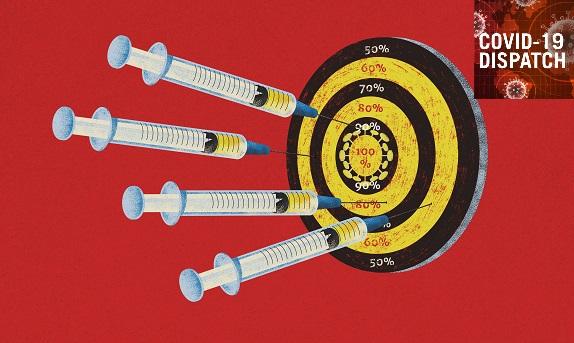
Since March 2020, TCTMD reporter Todd Neale has been writing up breaking news and peer-reviewed research related to COVID-19 every weekday. In July 2021, we transitioned to Mondays, Wednesdays, and Fridays. If you have something to share, tell us. All of our COVID-19 coverage can be found on our COVID-19 Hub.
September 3, 2021
The World Health Organization has added “Mu” (B.1.621) to its list of variants of interest, citing preliminary evidence that the strain can elude the antibody response expected following vaccination or prior COVID-19 infection. “Anthony S. Fauci, the top US infectious disease expert, said the United States was also monitoring the new variant, which was first identified in Colombia in January and now makes up 39 percent of all cases there,” the New York Times reports. Currently, in the United States, however, “the highly contagious Delta variant makes up 99% of all COVID-19 cases.”
The Office of Statistics in the United Kingdom estimates that one out of every 70 people in England is infected with COVID-19, the Guardian reports. That’s down from the peak of the second wave in January 2021, when approximately one in 50 people were estimated to have the virus.
People who get SARS-CoV-2 following full vaccination have reduced odds of hospitalization, fewer symptoms, and shorter duration of symptoms, a study in Lancet Infectious Diseases confirms. “Almost all symptoms were reported less frequently in infected vaccinated individuals than in infected unvaccinated individuals, and vaccinated participants were more likely to be completely asymptomatic, especially if they were 60 years or older.”
As of July 31, 2021, only 42.4% of US adolescents aged 12-17 had received at least one dose of a COVID-19 vaccine and just 31.9% were fully vaccinated. Moreover, vaccination rates in this group varied across the country, authors write in Morbidity and Mortality Weekly Report, stressing: “As the 2021-2022 school year begins, concerted public health efforts are needed to increase COVID-19 vaccination coverage among adolescents in addition to implementing COVID-19 prevention strategies based on community transmission.”
 Meanwhile the number of younger children developing COVID-19 is peaking for the second time in the United States, matching last winter’s surge, according to state-level data summarized by the American Academy of Pediatrics. “After declining in early summer, child cases have increased exponentially, with over a five-fold increase the past month, rising from about 38,000 cases the week ending July 22 to nearly 204,000 the past week.”
Meanwhile the number of younger children developing COVID-19 is peaking for the second time in the United States, matching last winter’s surge, according to state-level data summarized by the American Academy of Pediatrics. “After declining in early summer, child cases have increased exponentially, with over a five-fold increase the past month, rising from about 38,000 cases the week ending July 22 to nearly 204,000 the past week.”
Both acute and chronic myocardial injury in COVID-19 impeded 6-month survival among patients admitted to New York area hospitals and emergency departments, say researchers who presented their analysis at last week’s European Society of Cardiology Congress 2021. Although the risk of myocardial injury peaked early, it wasn’t restricted to the early “convalescent” period, reports TCTMD’s Caitlin Cox. When researchers excluded the first 30 days, patients remained at risk 6 months after chronic (HR 3.97; 95% CI 2.15-7.33) and acute injury (HR 4.14; 95% CI 2.75-6.21).
Results of the SAVE MORE trial of the rheumatoid arthritis drug anakinra (Kineret; Sobi) were reported today in Nature Medicine. Researchers demonstrated a significant reduction in worse clinical status and 28-day mortality among hospitalized patients at risk of progressing to respiratory failure given the IL-1α/β inhibitor than patients given placebo. An accompanying editorial explains why patient selection and drug timing are so critical.
The European Medicines Agency (EMA) is assessing whether vaccinations can cause multisystem inflammatory syndrome (MIS), the serious disorder that’s been documented in children and youth as a delayed consequence of SARS-CoV-2 infection. The EMA said it is embarking on the investigation following a report of a 17-year-old Danish male who developed MIS following vaccination, with no history of COVID-19.
The European Centre for Disease Prevention and Control along with the EMA have concluded that there is “no urgent need” for booster doses of currently available vaccines to fully vaccinated individuals in the general population, but they should be considered in people with severely weakened immune systems. When and in whom additional vaccine doses may be warranted is a topic under active assessment by the EMA.
The latest analysis of blood donations in the United States between July 2020 and May 2021 indicates that infection- and vaccine-induced SARS-CoV-2 seroprevalence passed 83% in the US population, with infection-induced seroprevalence estimates reaching 20.2%. That’s up from the 11.5% seroprevalence estimate from December 2020, the authors note. Seroprevalence rates differed substantially by age, race, ethnicity, and geographic region, authors write in JAMA.
 Also in JAMA, a research letter examines how antibody response varies by age and vaccine type. According to study authors, the Pfizer/BioNTech vaccine (BNT162b2) elicited relatively lower antibody levels in older vs younger adults, but no such difference was documented in antibody levels among older vs younger adults vaccinated with the Moderna (mRNA-1273) vaccine. “One explanation for the difference in immunogenicity observed in older adults could relate to the amount of mRNA used in the respective vaccines, with 30 μg contained in BNT162b2 and 100 μg in mRNA-1273,” they write.
Also in JAMA, a research letter examines how antibody response varies by age and vaccine type. According to study authors, the Pfizer/BioNTech vaccine (BNT162b2) elicited relatively lower antibody levels in older vs younger adults, but no such difference was documented in antibody levels among older vs younger adults vaccinated with the Moderna (mRNA-1273) vaccine. “One explanation for the difference in immunogenicity observed in older adults could relate to the amount of mRNA used in the respective vaccines, with 30 μg contained in BNT162b2 and 100 μg in mRNA-1273,” they write.
NOTE: There will be no Dispatch on Labor Day, Monday, September 6.
TCTMD Managing Editor Shelley Wood contributed today’s Dispatch.
September 1, 2021
On Wednesday, Carissa Etienne, MBBS, director of the Pan American Health Organization (PAHO), issued an urgent call for more vaccines for Latin America and the Caribbean, where three-quarters of people have not been fully vaccinated against COVID-19, Reuters reports. She “stressed the inequality in the access to vaccines in a region that has been disproportionately hit by the pandemic, with nearly a third of the world's deaths.”
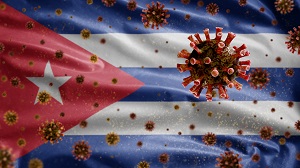 One nation in that region, Cuba, has an aggressive plan to battle the virus as it deals with a Delta-driven surge, announcing plans to vaccinate more than 90% of its population, including young children, by December (Reuters). All children ages 2 to 18 will get at least two doses of the homegrown Soberana-2 vaccine starting this week, a state-run news outlet said.
One nation in that region, Cuba, has an aggressive plan to battle the virus as it deals with a Delta-driven surge, announcing plans to vaccinate more than 90% of its population, including young children, by December (Reuters). All children ages 2 to 18 will get at least two doses of the homegrown Soberana-2 vaccine starting this week, a state-run news outlet said.
US Centers for Disease Control and Prevention (CDC) Director Rochelle Walensky, MD, said unvaccinated people should not travel over the upcoming Labor Day weekend, the unofficial end of summer, adding that gatherings of vaccinated people should take place outdoors and all Americans, vaccinated or not, should wear masks in public indoor settings, Becker’s Hospital Review reports. “Throughout the pandemic, we have seen that the vast majority of transmission takes place among unvaccinated people in closed, indoor settings,” she said at a Tuesday press briefing.
Patients with COVID-19 have nearly 16 times the risk of developing myocarditis compared with patients without COVID-19, though overall risk is very low (0.146% vs 0.009%), according to a study in Morbidity and Mortality Weekly Report. Risks were greatest in children and adults 75 and older. Some COVID-19 vaccines have been tied to risks of myocarditis, but prior studies have indicated that the likelihood of the complication is greater with the disease itself. “The findings in this report underscore the importance of implementing evidence-based COVID-19 prevention strategies, including vaccination, to reduce the public health impact of COVID-19 and its associated complications,” the authors write.
An ABC News analysis indicates that full approval of the Pfizer/BioNTech vaccine by the US Food and Drug Administration (FDA) did lead to an uptick in people getting their shots, as officials had hoped. There was a 17% increase in the number of people getting their first dose after the agency announced its decision. The number of Americans getting their first shot each day rose from an average of about 404,000 in the week leading up to the approval to about 473,000 as of Monday.
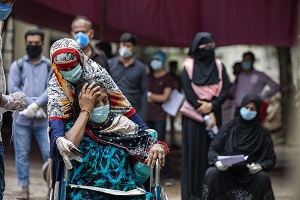 A cluster-randomized trial performed across 600 villages in rural Bangladesh, with more than 340,000 adults, showed that an intervention involving the provision of free masks and efforts to increase their use both increased proper mask-wearing (from 13.3% in the control villages to 42.3% in the intervention villages) and reduced symptomatic SARS-CoV-2 seroprevalence (from 0.76% to 0.68%). Reductions in the latter endpoint were larger in villages that received surgical versus cloth masks and among people 60 and older. “Our intervention demonstrates a scalable and effective method to promote mask adoption and reduce symptomatic SARS-CoV-2 infections,” the authors say. The findings were announced by the nonprofit organization Innovations for Poverty Action.
A cluster-randomized trial performed across 600 villages in rural Bangladesh, with more than 340,000 adults, showed that an intervention involving the provision of free masks and efforts to increase their use both increased proper mask-wearing (from 13.3% in the control villages to 42.3% in the intervention villages) and reduced symptomatic SARS-CoV-2 seroprevalence (from 0.76% to 0.68%). Reductions in the latter endpoint were larger in villages that received surgical versus cloth masks and among people 60 and older. “Our intervention demonstrates a scalable and effective method to promote mask adoption and reduce symptomatic SARS-CoV-2 infections,” the authors say. The findings were announced by the nonprofit organization Innovations for Poverty Action.
A scientific statement from the Heart Failure Society of America (HFSA), published Wednesday in the Journal of Cardiac Failure, “serves to outline the natural history of COVID-19 and its effects on the heart, pertinent discoveries, implications for clinical care, and remaining gaps in knowledge at the nexus of HF and COVID-19 in adults.” The authors note that patients with heart failure are particularly vulnerable to the effects of COVID-19, underscoring the importance of vaccination in this group.
Exposure to household members infected with SARS-CoV-2 is associated with a greater risk of infection among healthcare workers vaccinated against COVID-19, researchers report in JAMA Network Open. “Household exposure is usually longer and closer than casual exposure or exposure at work and does not include masking or distancing, thus exposing one to a higher infectious dose and being more contagious.”
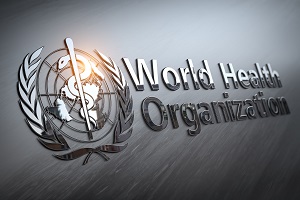 The World Health Organization (WHO) is keeping an eye on a new SARS-CoV-2 variant first detected in South Africa in May (called C.1.2), but “it does not appear to be increasing in circulation,” according to a spokesperson (Reuters).
The World Health Organization (WHO) is keeping an eye on a new SARS-CoV-2 variant first detected in South Africa in May (called C.1.2), but “it does not appear to be increasing in circulation,” according to a spokesperson (Reuters).
The American College of Emergency Physicians (ACEP) has joined the FDA and others in warning against the off-label use of ivermectin for COVID-19, citing spikes in problems related to unproven treatments at emergency departments and poison control centers. “Emergency physicians urge caution around unsourced information, bold claims, or instant cures made on social media or circulating among friends,” the statement says. Recent CDC data show a rapid increase in prescriptions for ivermectin accompanied by reports of severe illness associated with products—meant for either humans or animals—containing the drug.
August 30, 2021
Vaccine hesitancy is fivefold higher in Black versus white healthcare workers, according to a new survey of nearly 11,000 employees at two large hospitals in Philadelphia. Hispanic or Latino healthcare workers were about twofold more likely than their white counterparts to be hesitant about getting the jab, researchers report in JAMA Network Open.
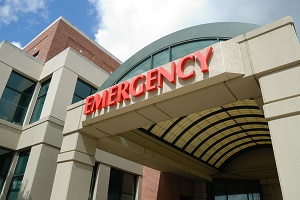 Infection with the Delta variant of COVID-19 doubles the risk of hospitalization compared with the Alpha variant, according to a study of more than 43,000 positive cases published in The Lancet Infectious Diseases. Delta cases also were 1.45-fold more likely to require emergency care or hospital admission within 14 days of infection.
Infection with the Delta variant of COVID-19 doubles the risk of hospitalization compared with the Alpha variant, according to a study of more than 43,000 positive cases published in The Lancet Infectious Diseases. Delta cases also were 1.45-fold more likely to require emergency care or hospital admission within 14 days of infection.
Immunization data on adolescents ages 12 to 17 in the United States show trends toward higher vaccination rates among those on the older end of the spectrum, with no differences between males and females. In Morbidity and Mortality Weekly Report, researchers say 86.8% of those who received the first part of a two-dose vaccine received a second dose within the recommended time frame.
Pfizer is attempting to stay on top of emerging COVID-19 variants by challenging its vaccine constantly against specimen samples from around the world. An article in STAT follows a day-in-the-life of the “vaccine hunters” as they race to stay ahead of the pandemic.
 Adults spoiled by Netflix and food deliveries aren’t the only ones who may have gained some COVID weight. A JAMA study of children in California shows that the youngest—5-year-olds through 11-year-olds— were most affected by pandemic weight gain, with an average body mass index increase of 1.57, compared with an increase of 0.48 in 16- and 17-year-olds. “These findings, if generalizable to the US suggest an increase in pediatric obesity due to the pandemic,” the researchers conclude.
Adults spoiled by Netflix and food deliveries aren’t the only ones who may have gained some COVID weight. A JAMA study of children in California shows that the youngest—5-year-olds through 11-year-olds— were most affected by pandemic weight gain, with an average body mass index increase of 1.57, compared with an increase of 0.48 in 16- and 17-year-olds. “These findings, if generalizable to the US suggest an increase in pediatric obesity due to the pandemic,” the researchers conclude.
According to the Center for Disease Control and Prevention (CDC)’s COVID Data Tracker Weekly Review for last week, new hospital admissions for confirmed COVID-19 are at their highest level since the start of the pandemic for all age groups under 50 years old. Deaths also are increasing, but are 76% lower than the pandemic's highest average.
Today, the European Union (EU) removed the United States from its list of nonessential safe travelers due to increasing COVID-19 cases. According to the Associated Press, the 27-nation EU also supports banning citizens of Israel, Kosovo, Lebanon, Montenegro, and North Macedonia for the same reason.
New Zealand says it has recorded its first case of a death linked to the Pfizer vaccine. The country issued few details other than that the death occurred in a woman following vaccination. BBC News reports that while an official cause of death has not yet been determined, an independent vaccine safety monitoring board said the death was "probably" due to myocarditis.
 Facebook groups and Reddit communities are home to growing populations of consumers who want access to, and information on how to use ivermectin to prevent or treat COVID-19. Despite a widely shared tweet last week from the US Food and Drug Administration advising consumers that the drug is for animals, not people, NBC News reports that there is no shortage of online users sharing personal experiences with taking the deworming agent and tips on how to get it from telemedicine prescribers or feed stores.
Facebook groups and Reddit communities are home to growing populations of consumers who want access to, and information on how to use ivermectin to prevent or treat COVID-19. Despite a widely shared tweet last week from the US Food and Drug Administration advising consumers that the drug is for animals, not people, NBC News reports that there is no shortage of online users sharing personal experiences with taking the deworming agent and tips on how to get it from telemedicine prescribers or feed stores.
Today’s Dispatch was contributed by L.A. McKeown.
Todd Neale is the Associate News Editor for TCTMD and a Senior Medical Journalist. He got his start in journalism at …
Read Full Bio


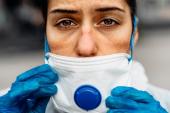

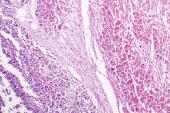
Comments